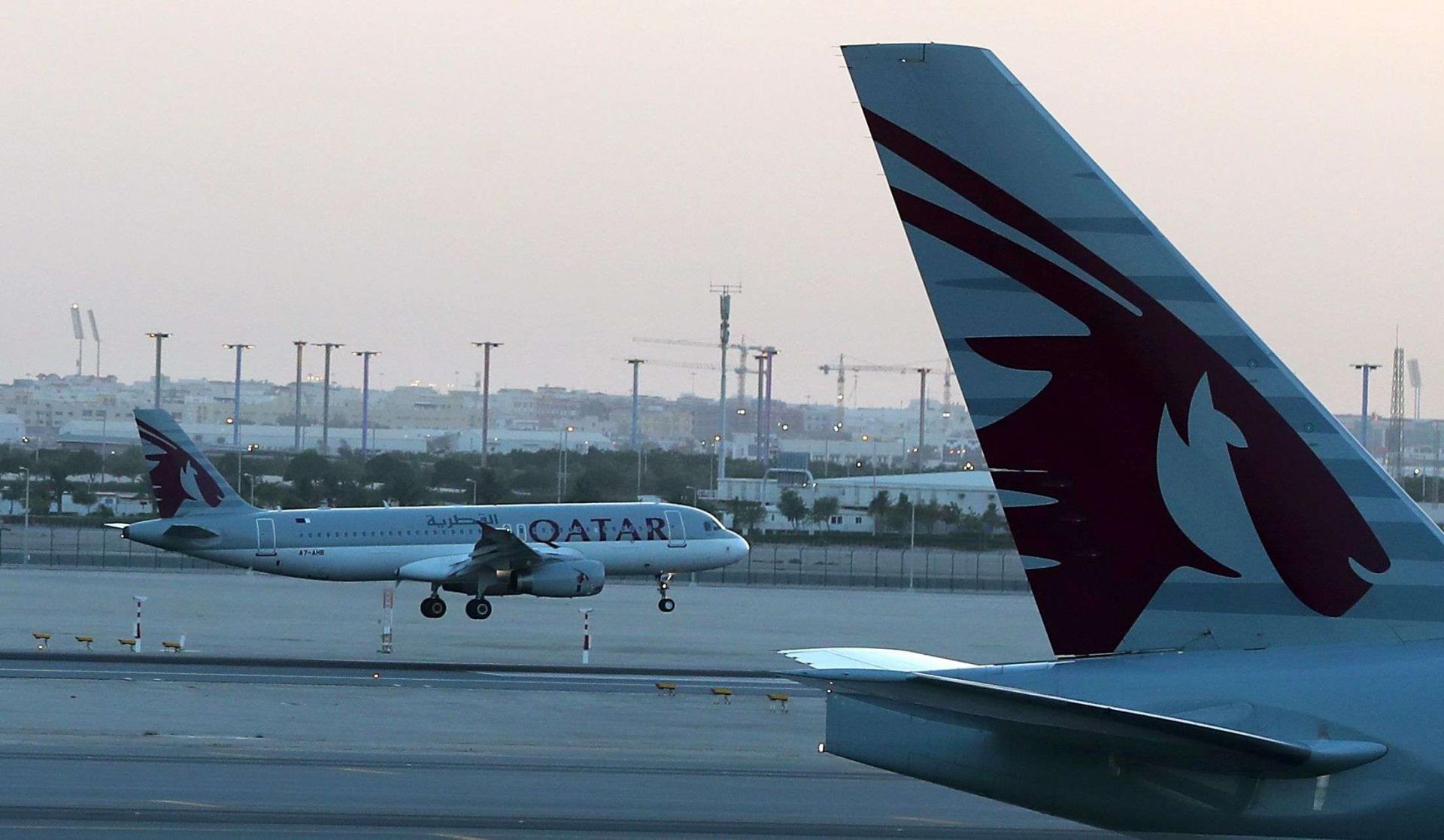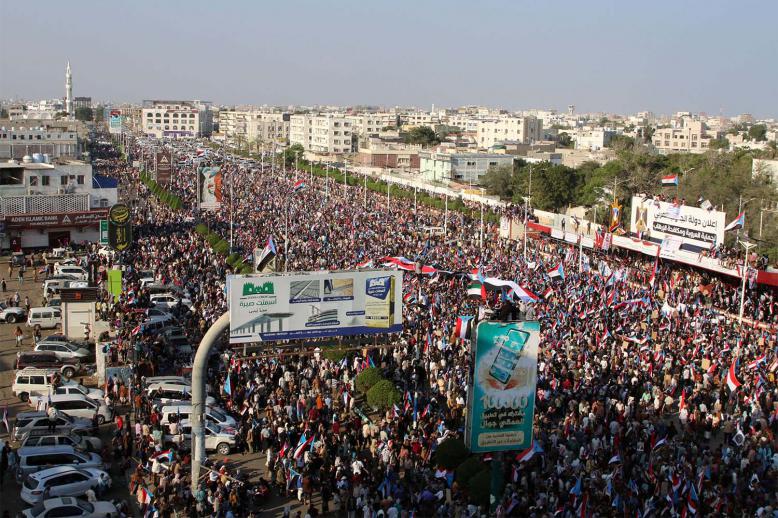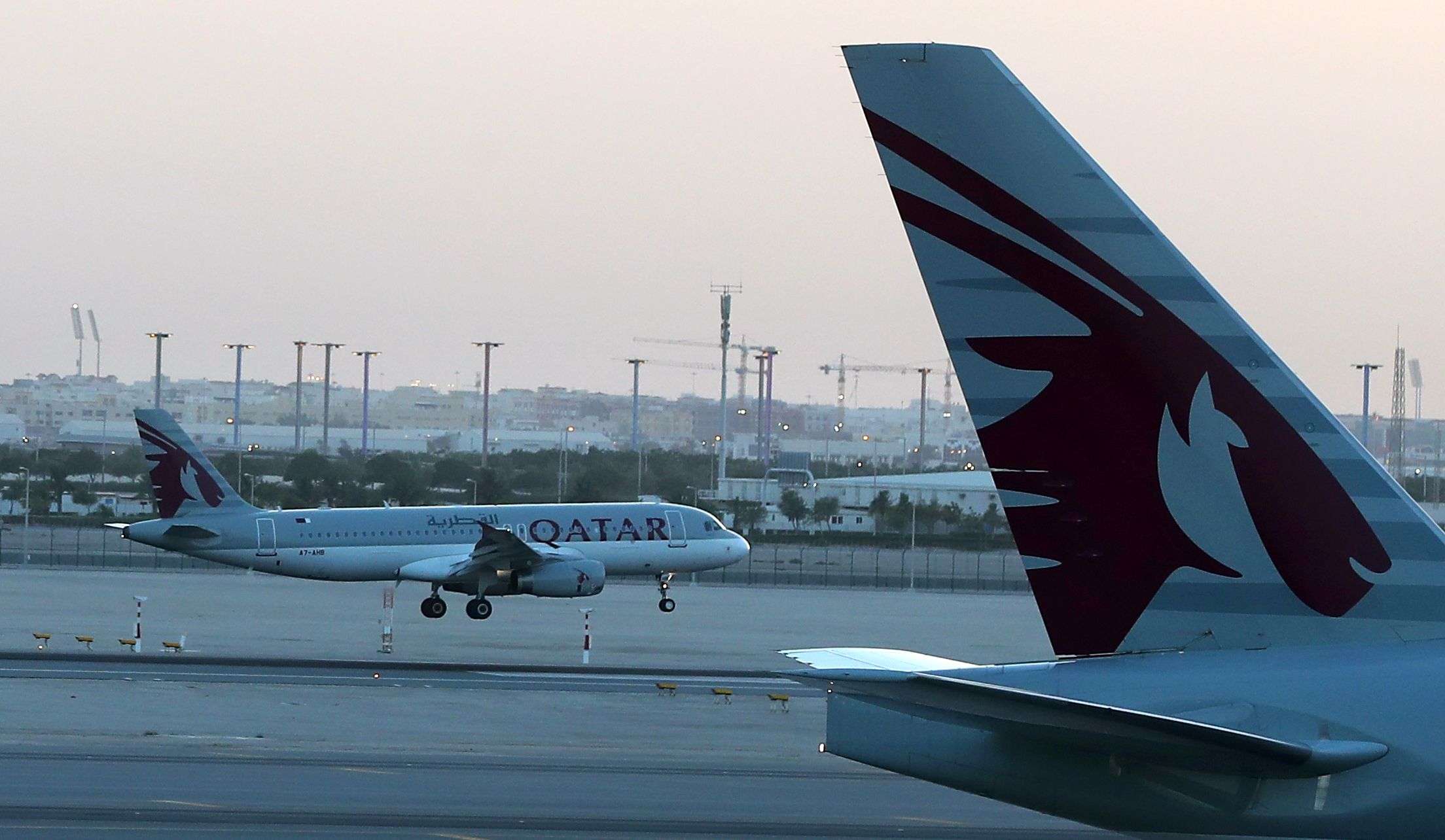Arab quartet turns to ICJ in airspace feud with Qatar
DOHA - Qatar's regional rivals including Saudi Arabia and the UAE said Wednesday they would file a complaint at the highest UN court against the isolated Gulf state over alleged airspace violations.
Both sides in a regional diplomatic crisis that saw a Saudi-led bloc break off all ties with Qatar last year are turning to the International Court of Justice in the Hague to hear their grievances.
Saudi Arabia, the UAE, Bahrain and Egypt decided to submit the airspace case to the ICJ on the grounds that the International Civil Aviation Organisation was not competent to consider the dispute, Saudi and UAE state media said.
The UAE has filed two complaints with the ICAO over what Qatar's rivals say are airspace violations that threaten civil aviation.
The UAE accuses Qatar of sending fighter jets to intercept passenger flights and a civilian helicopter in Bahraini airspace.
Doha has denied approaching any UAE-operated flights and has also filed its own case at the ICJ accusing the UAE of human rights violations.
Judges at the court in The Hague -- which rules in disputes between countries -- will start a three-day hearing at Doha's request on Wednesday. Judges will hears arguments by Doha's lawyers, with the UAE to respond on Thursday. Both will talk on Friday.
The case comes a year after Saudi Arabia, the United Arab Emirates (UAE), Bahrain and Egypt cut ties with Doha on June 5, 2017, accusing it of supporting terrorism and Iran. Doha denies the allegations.
Racial discrimination?
Qatar, a small peninsula nation, found its only land border closed, its state-owned airline barred from using its neighbours' airspace, and Qatari residents expelled from the boycotting countries.
It filed its case before the body based in The Hague earlier this month, saying the "UAE... implemented a series of discriminatory measures directed at Qataris based on their national origin," resulting in alleged human rights violations.
"Historically the people of Qatar and its neighbours have been close. For decades Qataris and Emiratis have worked together, prayed together and married into each other's families," said Mohammed Al-Khulaifi, Qatar's lawyer.
"Despite these close ties" the UAE implemented a "series of broad discriminatory measures against my country and its people on the basis of their Qatari nationality," he told a 16-judge bench at the tribunal.
"The UAE has fostered such an environment of hate against Qatar and Qataris that individuals in the UAE are afraid even to speak to family members living in Qatar," he said.
Qatar has asked the court -- which rules in disputes between countries -- to urgently order the UAE to "cease and desist from all conduct that could result... in any form of racial discrimination against Qatari individuals and entities".
Doha is basing its claim on the 1965 International Convention on the Elimination of All Forms of Racial Discrimination (CERD), one of the first global human rights treaties to be adopted.
Both Qatar and the UAE are signatories of the convention.
"The unlawful measures imposed by UAE have torn apart families," the Qatari foreign ministry said earlier this month, in a statement quoting Qatari Foreign Minister Mohammed bin Abdulrahman Al-Thani.
"The UAE deprived Qatari companies and individuals of property and assets and denied fundamental access to education, medicine and justice in the UAE courts," he added.
Qatar also accused the UAE of shutting down Al Jazeera Media network's offices and blocking the transmission of Al Jazeera and other Qatari media outlets.
Diplomatic efforts have so far proved fruitless in what was previously one of the most stable regions in the Arab world.
'Onus on Qatar'
“This action by the four countries to submit the case to the International Court of Justice comes in view of the decision of the ICAO council to grant Qatar the opportunity to hear its demands, which did not include the support of these demands or to call upon the four countries to take any action,” the Arab quartet said in a statement.
The four countries said that they are appealing to the court, while the ICAO will cease to consider Qatari claims until a ruling from the International Court of Justice is issued and “coincides with the continued exercise by the four states of their sovereign right to close the airspace to Qatari aircraft under international law”.
“The appeals and hearings of the International Court of Justice are expected to take a long time ... and accordingly the four states will continue to close their regional airspace to Qatari aircraft in order to preserve their national security and sovereign rights,” the nations said in a statement.
Saudi Arabia, the UAE, Bahrain and Egypt have said they would allow Qatari planes to use air corridors in emergencies.
Qatar said the dispute is an attack on its sovereignty and punishment for pursuing an independent foreign policy.
Doha is demanding "full reparation, including compensation for the harm suffered as a result of the UAE's actions in violation of the CERD," it said in papers before the court.
On the eve of the June 5 anniversary, Qatar's National Human Rights Committee released a report claiming more than 4,000 human rights abuses had been committed against Qataris by the Saudi-led alliance in the past year.
Qataris have been exposed to arbitrary arrest and routinely denied freedom of movement, the report by the government-appointed body said.
The UAE in return has said the "onus is on Qatar if it really wanted to come out of its isolation".
Doha has been handed a list of 13 demands by its Gulf neighbours, including closing Al Jazeera, removing Turkish troops from the country and scaling back its cooperation with Iran, with which it shares the world's largest gas field. It has not met any of them.






